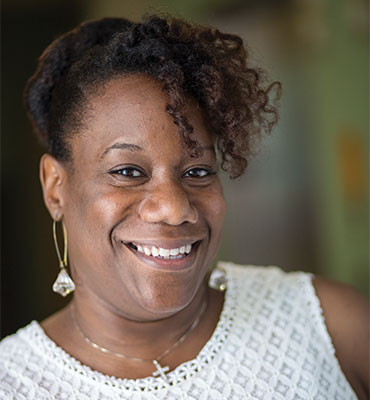
AL DÍA Women of Merit Honoree: Kelli McIntyre
Kelli McIntyre is one of the AL DÍA Women of Merit honorees, in the field of public service.
The AL DÍA Women of Merit event is a celebration of women who are breaking barriers and emerging in leadership positions across the nation.
Kelli McIntyre, Health Justice & Livability Projects Manager at the Philadelphia Department of Public Health in the Chronic Disease & Injury Prevention Division., is one of the honorees at the event, in the field of public service.
In the lead-up to the event, AL DÍA asked each of the honorees about their biggest career challenges and accomplishments, gender equality in their industries and their of advice for other women looking to make their way into their particular field of work.
Here are Kelli McIntyre's responses:
The most significant challenge that I have faced in my career was balancing doing the work of racial justice in public health while finishing my degree in public health and actively fighting systems of oppression in my everyday life...in the midst of a pandemic. The decision to go back to school to complete the Master’s in Public Health program at oldest and perhaps most well-known institution for public health education, Johns Hopkins Bloomberg School of Public Health after almost 20 years of working was challenging. Education is much different now than 20 years ago, imposter syndrome threatened my confidence, and balancing schoolwork with full-time work, parenting, and managing my household was a daily struggle. Adding to that burden- I accepted a second job with America Walks, a global pandemic hit forcing us all to figure out how to do work and school from home, and the pot of racial injustice boiled over around us. It was all was overwhelming. To have completed that degree in August of 2020, despite the circumstances and without any fanfare, was the greatest accomplishment of my life.
RELATED CONTENT
In all fairness, public health is my third career path and I am relatively new to the field of public health and public service, having assumed this role just over 6 years ago.
What I can speak to is that the systems and practices of oppression that were at work in my previous 2 careers of Athletic Training and Corporate Wellness, are also alive and well within government and public health. Prior to my current role, for the first 20 years f my career, every superior that I have ever had has been a white man. Even when my education level was higher and my creative vision directed the work, the credit (and pay) for the leadership went to someone else. That shifted when I began to work in public health. Though the field of public health seems to be dominated by women, they are primarily white women. In public health and government, there also seems to be an added issue of elitism, where we somehow believe that “leadership” requires advanced degrees from certain institutions, instead of recognizing the everyday experience and expertise that is held by regular people.
Unfortunately- we still have so much work to do to recognize the value of the expertise brought to the table by Black and brown women who have likely experienced oppression as we have climbed ladders of success. I believe that the answers to the biggest problems in our world require the expertise and unique skills of Black and brown women.
We have much work to do in identifying and rooting out biases from our decision-making processes. In most cases, the way that we have always done things, or the status quo is racist, sexist, elitist, etc. It is so important for leaders to be challenged to make those things that are implicit in decisions explicit, and also involve people most impacted by decisions in the process.
Don’t ever listen to people who attempt to limit your potential by telling you to “stay in your lane”. Who designed these lanes and decided who belonged where? And who decides when people can switch lanes? No one who made real and meaningful change has ever stayed in their lane.











LEAVE A COMMENT:
Join the discussion! Leave a comment.